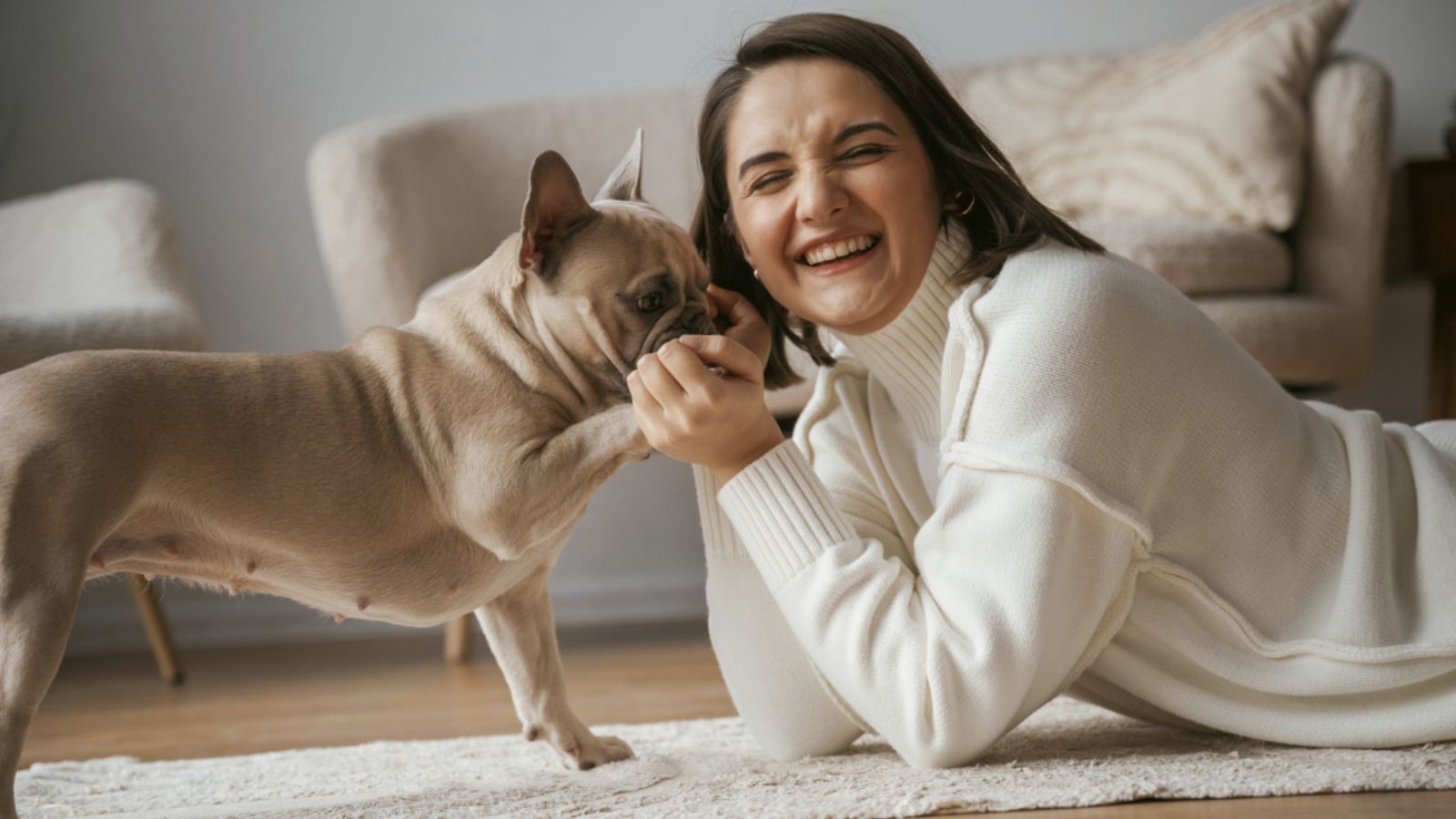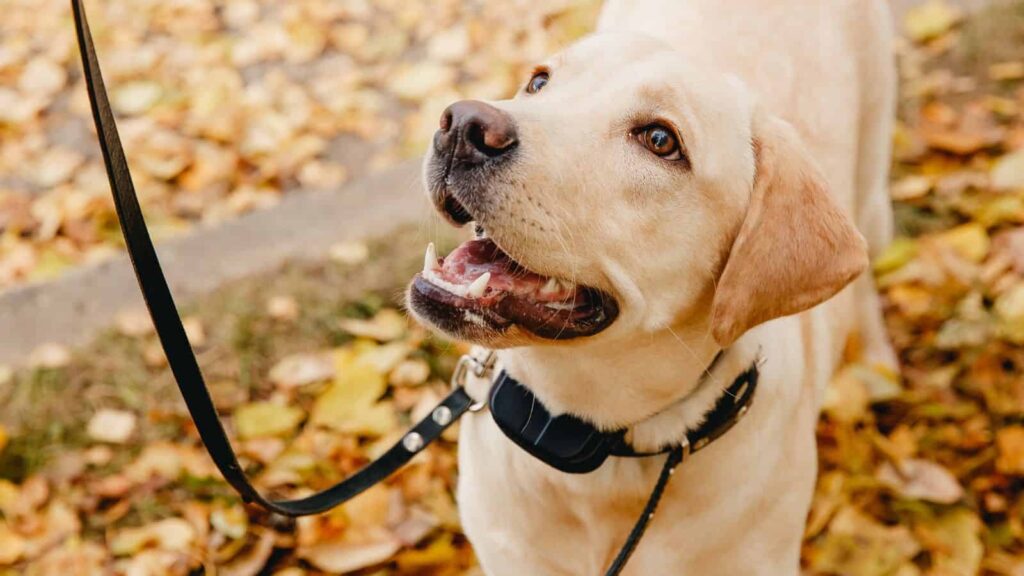Owning a dog can bring endless joy, but it also comes with its challenges. Ensuring a harmonious relationship with your furry friend often boils down to proper training and good manners. In this article, we’ll explore 17 essential tips for raising a well-behaved dog, helping you build a strong, positive bond with your pet.
Exercise and Play

According to K9 Top Coat, regular walks and play make dogs happier and healthier. It’s not just about letting them out. It’s about active play and interaction. Use toys that make your dog think and move. This makes them physically and mentally strong and keeps bad behavior away.
Establishing Rules and Boundaries

To help your dog behave, you need clear rules. Hill’s Pet recommends using the same words when you tell them what to do, so they don’t get mixed up. Show them where they can go in the house or yard. And when your dog does something good, give them a treat or a cuddle.
Positive Reinforcement Training

Companion Animal Psychology defines positive reinforcement training as rewarding a dog with something immediately after a behavior occurs to make the frequency of the behavior go up. It is one of the most common ways to get dogs to behave. It is even used by professional trainers, so you know it’s most certainly effective.
Understanding Your Dog’s Needs

Understanding your dog means learning about their breed and behaviors. Each dog is different, so knowing what they like and how they act is key. You should watch for what stresses your dog. It could be loud noises or strangers. Try to keep these things away from your dog.
Socializing Your Dog

When you get a new puppy, it’s good to let them meet other dogs and people. This is called socializing. It helps them learn to be friendly and not scared. Take your dog to classes or parks where they can play with others. Also, take them to different places so they can meet various animals and people.
Proper Nutrition and Health Care

Keep your dog healthy with good food and veterinarian visits. What your dog eats affects how they act. Give them the right foods for their age and type. Take them to the vet regularly to catch any health problems early. A healthy dog is more likely to be a happy and well-behaved dog.
Effective Communication

Dogs understand us through our words and body language. In fact, experts say that you should use both to help your dog understand you better. You should also learn what your dog’s actions mean. Are they happy, scared, or upset? Good communication means you and your dog will understand each other better.
Handling Aggression

When your dog acts aggressively, it’s important to find out why. It might be fear or protecting something. Talking to a dog expert can help you understand and fix the problem. Also, making sure your dog feels safe at home might help stop the aggression.
Dealing with Separation Anxiety

Separation anxiety can be tough on dogs. They feel scared when you’re not around. Start by leaving them alone for just a short time, and then slowly stay away longer. Give them something that smells like you to help them feel calm. Training can also help them get used to being alone without feeling stressed.
House Training Basics

House training is teaching your dog where and when to go to the bathroom. Stick to a schedule for taking them outside. If they have an accident inside, clean it up without getting mad. Crate training can also help, as it teaches them to wait until they’re outside.
The Role of Mental Stimulation

Dogs need to think and learn to stay sharp. Giving them toys that make them solve problems can help achieve this. Keep training fun and short to keep their attention. Also, regularly teaching them new things will stop them from getting bored and acting out.
Building Confidence in Shy Dogs

Shy dogs need extra love to feel brave. Make sure they’re in a kind and safe place. Slowly let them meet new things and people so they don’t get too scared. Remember, you also started somewhere when trying out new things! It’s the same exact feeling your dog has when it experiences something for the first time.
The Importance of Routine

Dogs like knowing what’s going to happen next, like when they’ll eat, walk, or sleep. This makes them feel secure. When dogs know what to expect, they behave better and feel more relaxed. Having a schedule also helps you stay on top of all your dog-related chores in addition to your other responsibilities.
Addressing Excessive Barking

Dogs bark for many reasons, like boredom or fear. Figure out why your dog is barking a lot. Teach them to be quiet on command and distract them when they start barking too much. If the problem doesn’t go away with all these tricks, speak to a professional immediately. It could be a sign of a more serious problem.
Managing Destructive Chewing

Dogs might chew on things when they’re bored, stressed, or just because it’s fun for them. To stop them from chewing your stuff, give them toys meant for chewing. Watch your dog to guide them away from bad chewing habits. This way, they won’t feel the need to chew on things they shouldn’t.
Senior Dog Care

Dogs are usually considered senior when they’re about 7 to 10 years old, but this can vary depending on the breed and size. Older dogs need different care, like gentler exercise that fits their older bodies. They also need things to keep their minds busy and a comfy place to rest. It’s essential to notice these needs and help them enjoy their older years comfortably and happily.
Patience

Being patient with your dog means understanding that learning and changing behaviors take time. Always train your dog the same way to help them learn better. Stay calm, even if they don’t get things right away. Remember, getting upset won’t help. It might even make the behavior worse.







